
American journalist investigates organised crime in Southeast Asia — drugs, dognapping, defectors and role of the Catholic Church
From the drug dens of Myanmar to the mean streets of Thailand, writer Patrick Winn has come to understand his adopted home – and offer a written antidote to misrepresentations in Western media
Hello, Shadowlands is the first book by Patrick Winn, an American-born journalist who lives and works in Bangkok. His research included hanging out with meth addicts (and watching them go cold turkey while locked in bamboo cages) in Myanmar – and smoking opium there to prove he is not a policeman – chatting with terrified sex workers in a Thai border town, dancing with aloof North Korean restaurant hostesses in the Thai capital, watching a dog being prepared as food in Vietnam, buying illegal contraceptive potions in the Philippines and a whole lot more.
Winn has also been shot at by Thai police, but that incident is another story and lies outside Hello, Shadowlands ’ pages.
I wanted to write a book about this booming world of organised crime through the eyes of the criminals [...] They have all seemed perfectly rational. I have enjoyed their company
Winn’s purpose was not the reckless pursuit of cheap thrills, although when pressed, the 37-year-old admits his day job as a journalist has its outlandish attractions. “Is there a version of excitement completely stripped of fun? Exhilarating, but not fun?” he asks. “Obviously, I have an appetite for things like that.”
Winn’s main goal, however, has always been his own education – organised crime is his chosen means to understand a country’s culture, politics and people. Each of the six chapters in Hello, Shadowlands deals with a particular crime in a particular place, often with the corollary of citizens taking the law into their own hands. There is abuse of yaba (methamphetamine) in Myanmar, and the primitive drug-rehabilitation camps run by Pat Jasan, a group of militant fundamentalist Christians. There is dognapping in Vietnam, and the vigilante groups, often run by former Vietcong, who are fighting back. There is the Thai party town, on the border with Malaysia, targeted by Islamic rebels. Perhaps most intriguing of all is another kind of drug trade: of contraceptive pills and potions in Manila.
“I wanted to write a book about this booming world of organised crime through the eyes of the criminals, and of the police,” Winn says. “That means the drug trafficker, the drug user, the jihadi, the smuggler, the vigilante, the motorbike bandit. The criminals are not deranged. They have all seemed perfectly rational. I have enjoyed their company. I have thought if I were in that situation, I would have done the exact same thing.”
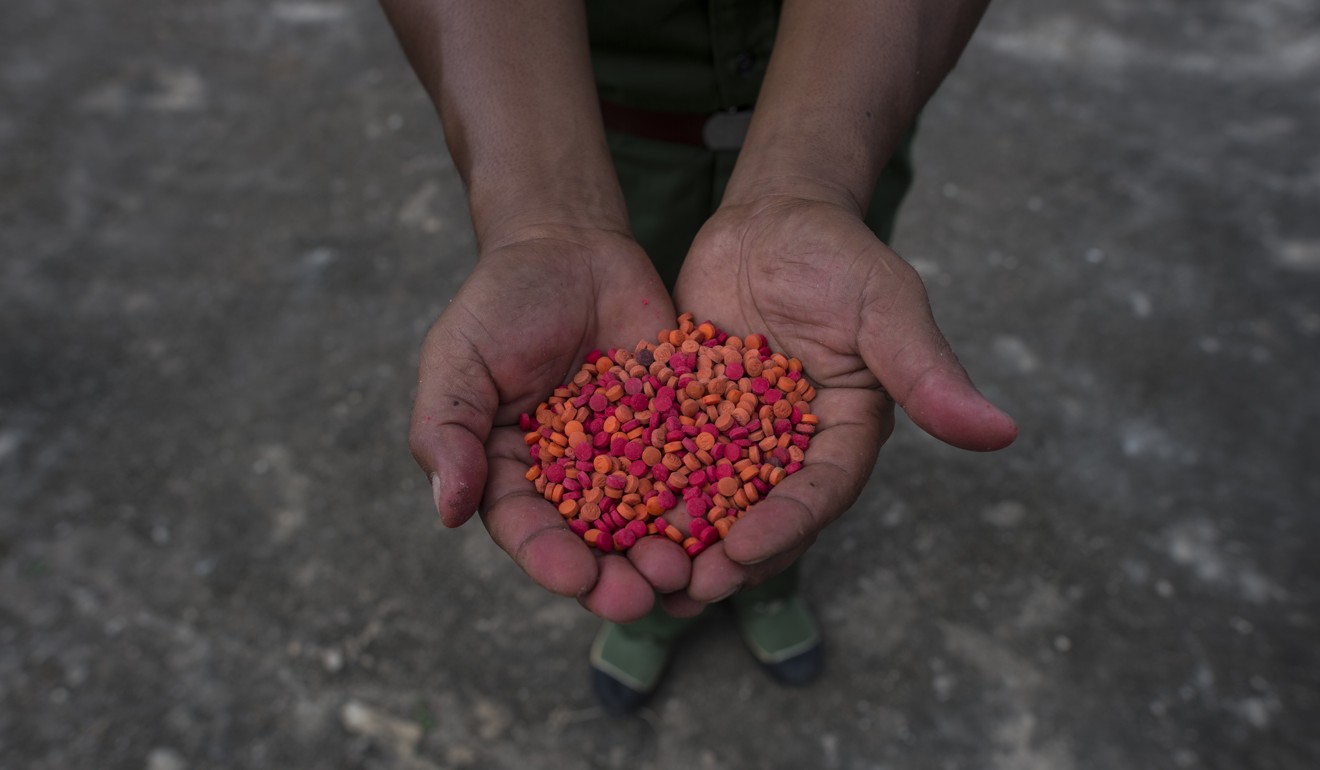
The author explains this empathetic modus operandi in several ways. For one thing, he wanted to counter the kind of sensational reporting typified by newspapers in the West. He cites publications such as the Huffington Post and Daily Mail that glory in salacious details of dognapping in Thailand and dog eating in Vietnam.
What does Winn think Western readers glean from such stories? “I totally know,” he says, with some passion. “It’s this jolt of superiority: ‘Have you heard what these people do?’ It makes you feel good because you are more civilised. ‘Aren’t they mysterious? Isn’t it good that we’re not them?’”
Not that Winn himself has always been free of similar preconceptions. “I have had to do a lot of unlearning,” he says, regretting his own “sensational” account of dognapping in Thailand, which he wrote when less enlightened about the Southeast Asian country. “That was probably my first engagement with an underworld story. I bet if I did it today, I would handle it more delicately.”
Southeast Asia’s criminal underbelly exposed in Hello, Shadowlands
Originally from “a small factory town in North Carolina”, Winn moved to Bangkok in 2008, with his girlfriend, Pailin Wedel, a Thai-American photojournalist who is now his wife. “We could see the newspaper industry was collapsing in the United States,” he says. “She’s the reason I landed in Thailand and started pursuing any story that interested me.”
Ten years on, Winn is Asia correspondent for Public Radio International, a non-profit organisation providing content from around the world to be broadcast on National Public Radio in the US. “It’s just me, covering all of Asia. Completely absurd.”
I ask if he can still remember his first impressions of Bangkok. “Everything was interesting,” he says. “The fact the taxis were bright pink; the noodles people were selling on the street; the rough farm dudes drinking up the road – everything was interesting, and has not ceased to be interesting.”
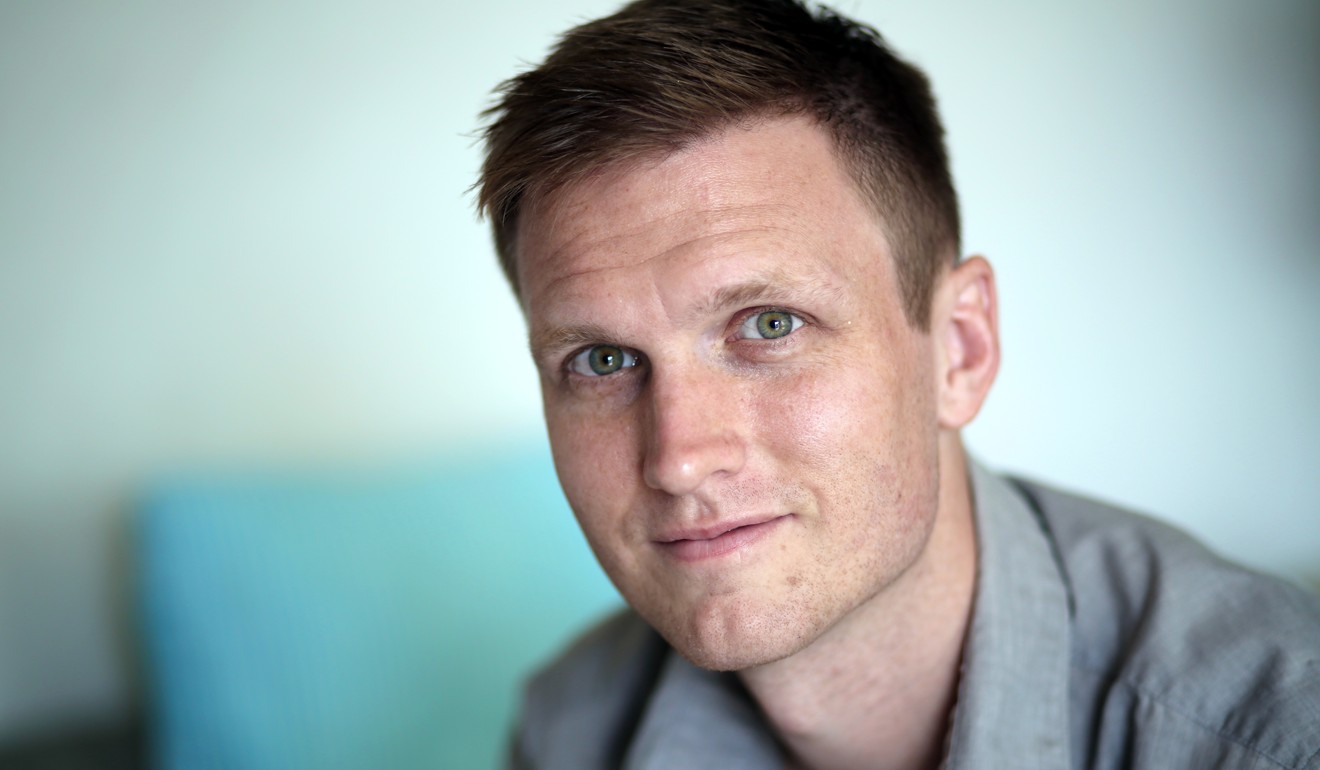
Journalism was Winn’s way of exploring his adopted homeland. “I started attacking all these stories, using journalism to figure out where I was,” he says. “I went slowly. I wanted to know a good deal about a country before I started writing about it.”
Indeed, a subtext running throughout Hello, Shadowlands is Winn’s gradual acclimatisation to Asia. “I was ready to be moulded, and I have been moulded by the stories.”
In addition to learning what he likes for breakfast (the Thai staple of grilled catfish is a favourite), the reader can trace Winn’s evolving attitudes, not least to the sometimes fraught relationship between America and Southeast Asia. “As I’ve come to feel that Thailand is home and it’s become more familiar, the starkness with which the Western media covers these [crime] stories really sticks out,” he says. “As the people I was writing about seemed less strange, the way it was reported seemed more jarring.”
Winn knew little of the region before he arrived in it. His primary sources of information were his father, who dodged the Vietnam war draft, and “watching s***ty Vietnam war movies as an adolescent […] I was incredibly miseducated about this region”.
I began to learn about the cruelty inherent in some of these colonial policies – the haphazard ways that borders were drawn and lives screwed up. The US killed 1,000 civilians a week with its bombs for stretches of the Vietnam war
Discovering the extent of the West’s interventions in this part of the world proved both discomforting and humbling. “I began to learn about the cruelty inherent in some of these colonial policies – the haphazard ways that borders were drawn and lives screwed up. The US killed 1,000 civilians a week with its bombs for stretches of the Vietnam war. It undid me, in a way. What pedestal do we think we are on? The domestic governments never caused as much carnage as my own did during Vietnam.”
There are moments in Hello, Shadowlands when Winn suddenly becomes self-conscious of his American roots: nowhere more so than when he talks to the former Vietcong soldiers now fighting dognappers in Vietnam.
In the case of Manila’s female-run drug ring that pedals forbidden contraceptive pills, however, it was Winn’s gender that posed a problem. “I knew when I went into this world that my maleness was a liability so far as understanding what it would be like to be terrified of getting pregnant: the added poverty that would bring,” he says. “That is a mental space that is kind of hard to grasp deep down.”

Equally hard to grasp are the statistics: the population of the Philippines has tripled in the past 50 years, from 35 million to 105 million, and the current birth rate has been estimated at 5,000 newborns a day. At least one in four are unplanned.
For women such as Karen (not her real name), a porridge seller Winn meets in Manila, an unwanted pregnancy can be disastrous. Karen was already struggling to feed three children when she fell pregnant again. “The fourth child was going to push her meagre pay beyond what it could handle,” Winn says. “She felt the pregnancy was a real threat to her existing children. You can imagine in that situation you would do almost anything to prevent your life spiralling out of control.”
Her first, semi-legal solution was to consult albularyos (witch doctors) who operate in a legal grey area in the Philippines: although not actually outlawed, they are condemned outright by the powerful Catholic Church. The risks did not prevent Karen attempting to terminate the pregnancy by drinking a brew of makabuhay, mahogany seeds and skin of the lanzones fruit. When that failed, she attended the annual procession of the Black Nazarene sculpture of Jesus Christ, placing in its robes a handwritten wish to lose her child. All to no avail.
With no help from her abusive, drug-addicted husband, Karen turned to selling methamphetamine. Far from judging her, Winn admires Karen. “I find that a radical act of love, actually,” he says. “I was very moved by that. And the government would have her shot in the head or thrown into prison for this?”
Karen is, he argues, partly a victim of Spanish colonial rule that, half a millennium ago, introduced a particularly hardline form of Catholicism to the Philippines.
“Magellan landing on a beach caused great chaos in people’s lives today,” Winn says.
Selling meth has placed Karen on the wrong side of Philippines President Rodrigo Duterte’s uncompromising war on drugs, with allegations of extrajudicial killings by police. Karen tells Winn she is in fear for her life, and yet, in one of global politics’ stranger twists, Duterte, virulently anti-Catholicism (he recently proclaimed that “God is stupid”), not only supports gay rights, he endorses contraception.
“It’s almost heretical in the media circles I move in to say anything nice about this guy, and for good reason,” Winn says. “[But] I wasn’t aware that Duterte, the face of this drug war prosecuting thousands of people, is actually chill when it comes to contraception; that his ideas are more similar to, say, my own.”
Duterte is even in favour of state-funded contraception, Winn says with wonder. “S***, we don’t have that in the US. But this is what you get to do in a book – explore that complexity. It’s such an unorthodox organised-crime story. Organised crime makes you think of drugs and mafia. This is an arena in which the underworld and black market are providing a service that these women genuinely deserve. We hear about the drug war in the Philippines, against methamphetamine users, which has killed upwards of 10,000 people. I wanted to look at this different drug war waged by the Catholic Church. I thought it was untrammelled territory.”
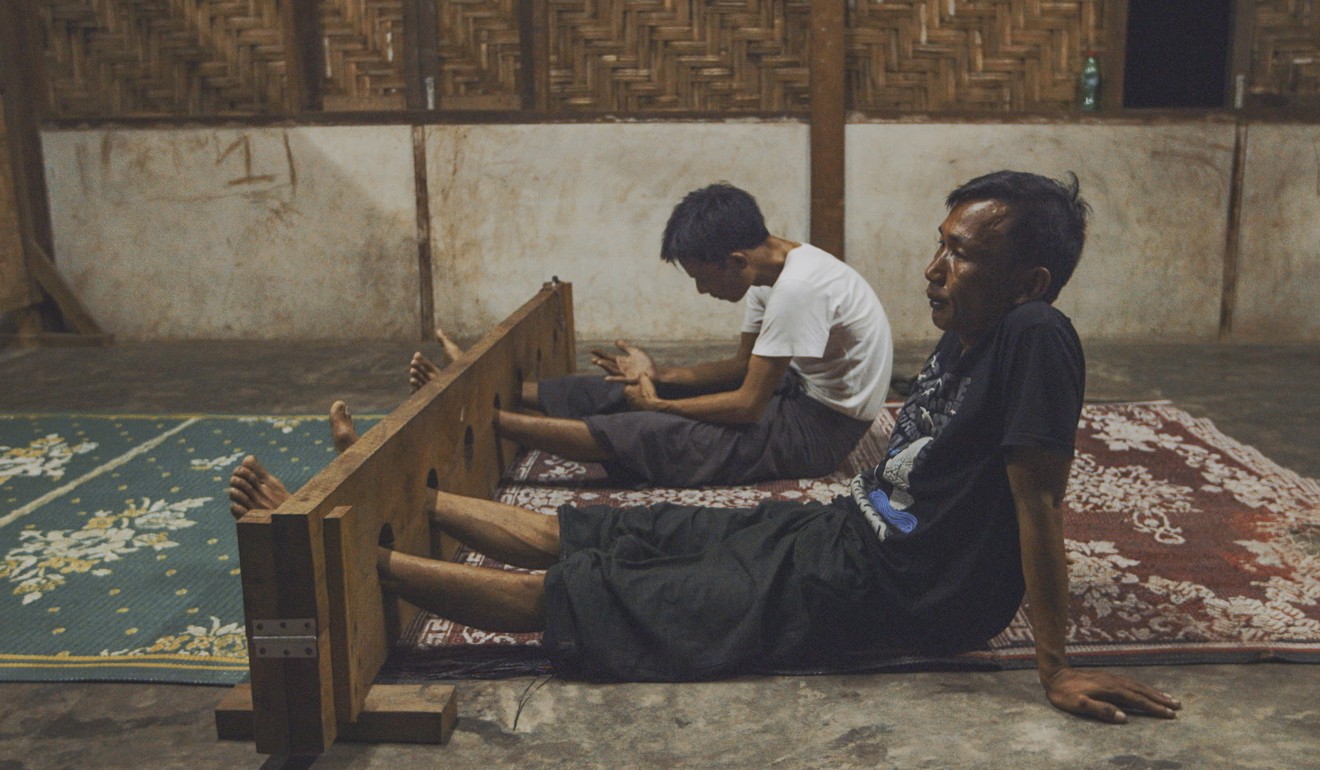
Duterte’s beliefs are typical of the contrasts and contradictions that are redefining the region. “The geopolitical map of Southeast Asia is being completely rewritten right now,” Winn says. “I don’t think the international media is doing a very good job of capturing it.”
To back up his assertion, Winn gives a mini lecture, replete with facts and figures: “Southeast Asia has more people than Europe, North America or South America. If it were a country, Southeast Asia would be growing faster economically than every other nation – including China and India. That alone should mean Europe and the US have a really strong policy objective towards this region. But it seems to be a total afterthought.”
Former US president Barack Obama began positively, describing the region as “a pivot to Asia, but he got bogged down in the Middle East”, Winn says. Nor did Obama refresh America’s default conviction that Southeast Asian nations should just sign up to democracy. “Until Trump, you had a lot of finger wagging from the US. ‘You shouldn’t be having military coups.’ I was never a fan of the finger wagging. I thought it was morally suspect for the US, after bombing the s*** out of this region, to act as this guiding moral light.”
Winn argues that this policy has changed under US President Donald Trump’s surface bluster, although how he is not exactly sure. “It’s been replaced by …” He pauses. “I don’t know what Trump’s policy is on Southeast Asia, but it’s certainly not helping America’s stance in the world. The United States is completely sleeping on the region.”
Imagine you are the military dictatorship in Thailand and you are looking at the US and China as political models. You would choose China every time
Accelerating America’s declining influence in Asia is China’s expanding power and diplomatic acuity. “China has established increasing dominance,” Winn says. “Its style of government, its way of seeing the world, is becoming more and more popular in Southeast Asia. It has filled the vacuum.”
Winn offers a hypothetical example. “Imagine you are the military dictatorship in Thailand and you are looking at the US and China as political models,” he says. “You would choose China every time. The US looks dysfunctional – powerful, but messy. These are generals, they like order and stability. In China, the gross domestic product goes up every year. It has managed to cow its population quite effectively. That looks the way to go. I am not speaking for the average person, but those in power.”
Myanmar, he argues, is happy to appeal to both Washington and Beijing. “They have invited the US in to counterbalance China. They were afraid of being completely under China’s sway and becoming a vassal state.” The election of Aung San Suu Kyi, which, Winn believes, was engineered to attract American investment, has backfired after the violent persecution of the Rohingya people. In any case, he says, the real power rests with Min Aung Hlaing, commander-in-chief of the Myanmar armed forces. “No one is writing the big profile piece on Min Aung Hlaing. He’s the stodgy old general in his khaki suit. Even within the region, people don’t know his name, but he’s the guy.”
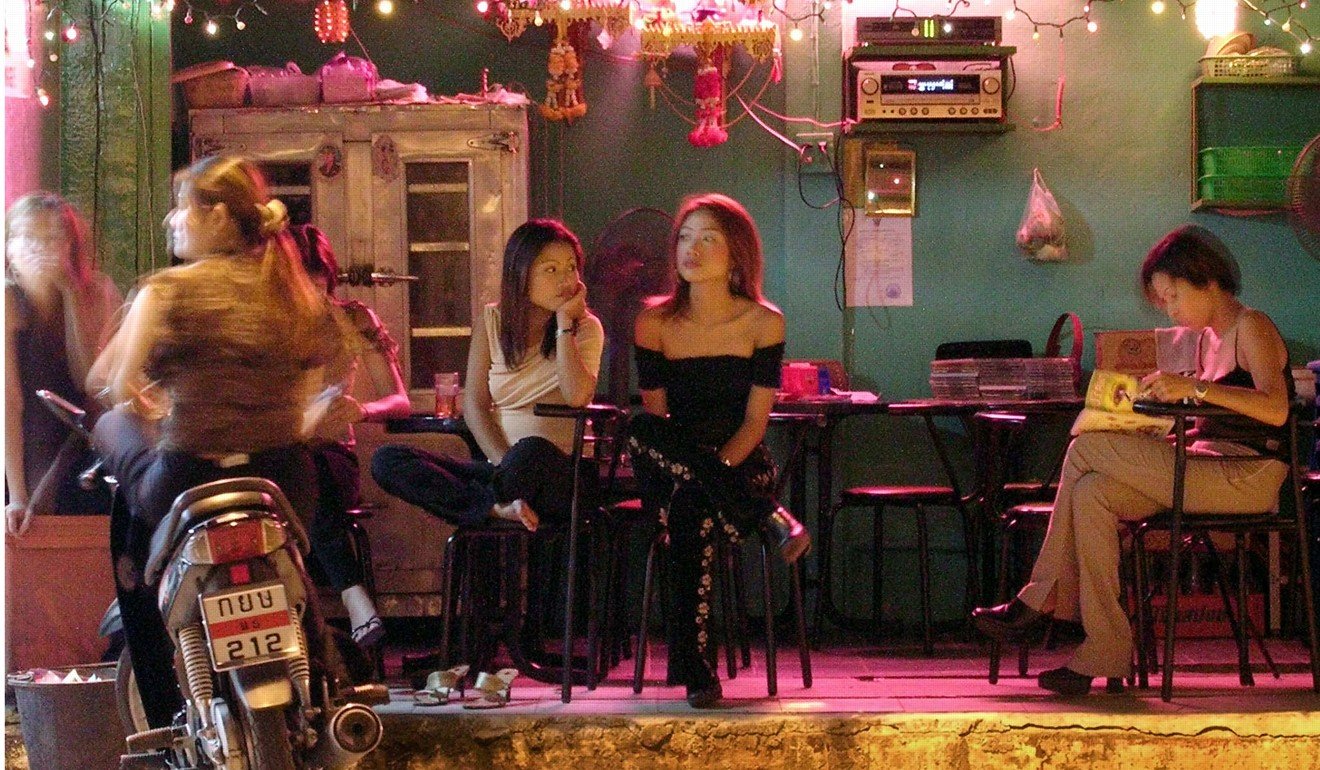
In Hello, Shadowlands, Winn traces the bewildering alliances formed by Myanmar’s ruling army and the country’s diverse warlords and ethnic groups. And he describes how the army has dangled the most unlikely of carrots before potential rebels: a slice of the US$40 billion-a-year drug trade. “Pfizer doesn’t make that much money in a year,” Winn says with astonishment. “In trying to conquer [Myanmar’s] minority areas, the state tempts warlords or brigade commanders by saying, ‘If you side with us, you have impunity to churn out as much methamphetamine as you like, traffic drugs as much as you like, and make millions of dollars.’ The army has used the ethnic tension to their advantage very cleverly by flipping would-be rebels.”
This Faustian pact – franchised drug production – is the means to fraught political ends: essentially “to hold together a nation that doesn’t make all that much sense in its present-day borders. Myanmar is a natural tinder box. They are almost primed to fail.”
Winn believes the ramifications for the wider world are grave. As Hello, Shadowlands’ epilogue illustrates, Myanmar’s drug trade is spilling over its borders, following the mass exodus of the Rohingya into Bangladesh. “We ignore this underworld behemoth at our peril,” the writer says. “I am speaking to the West, I suppose. It will keep spreading. There are very savvy entrepreneurs involved in organised crime in Southeast Asia, and it is increasingly transnational.”
Drug lords exploit refugee crisis, recruit desperate Rohingya as meth mules
A similarly tangled web of local and global interests is evident in a Hello, Shadowlands chapter titled “Pyongyang Dancing Queens”, about waitresses who work in North Korean restaurants across Southeast Asia. The primary challenge was purely journalistic: could Winn get inside the heads of women working under constant supervision and surveillance?
“There’s a great quote: ‘It’s easy to wake up someone who’s asleep; it’s impossible to wake someone up who’s pretending to be asleep.’ People in North Korea have to live in that head space, especially if they are high-level and are monitored all the time.”
Having drunkenly waltzed with one waitress, Winn’s attempt to engage another in conversation proves fruitless. His “vanilla” questions about Bangkok, the internet and whether she misses home are deflected effortlessly, and followed by his ejection from the venue.
This disconnection proves a hindrance to Winn in trying to answer his central question. “There are certain human rights groups who say they are slaves,” he says of the North Koreans. “When I go and have a bunch of beers and soju, and end up dancing with one of them, am I complicit in slavery now? God, I hope not.”
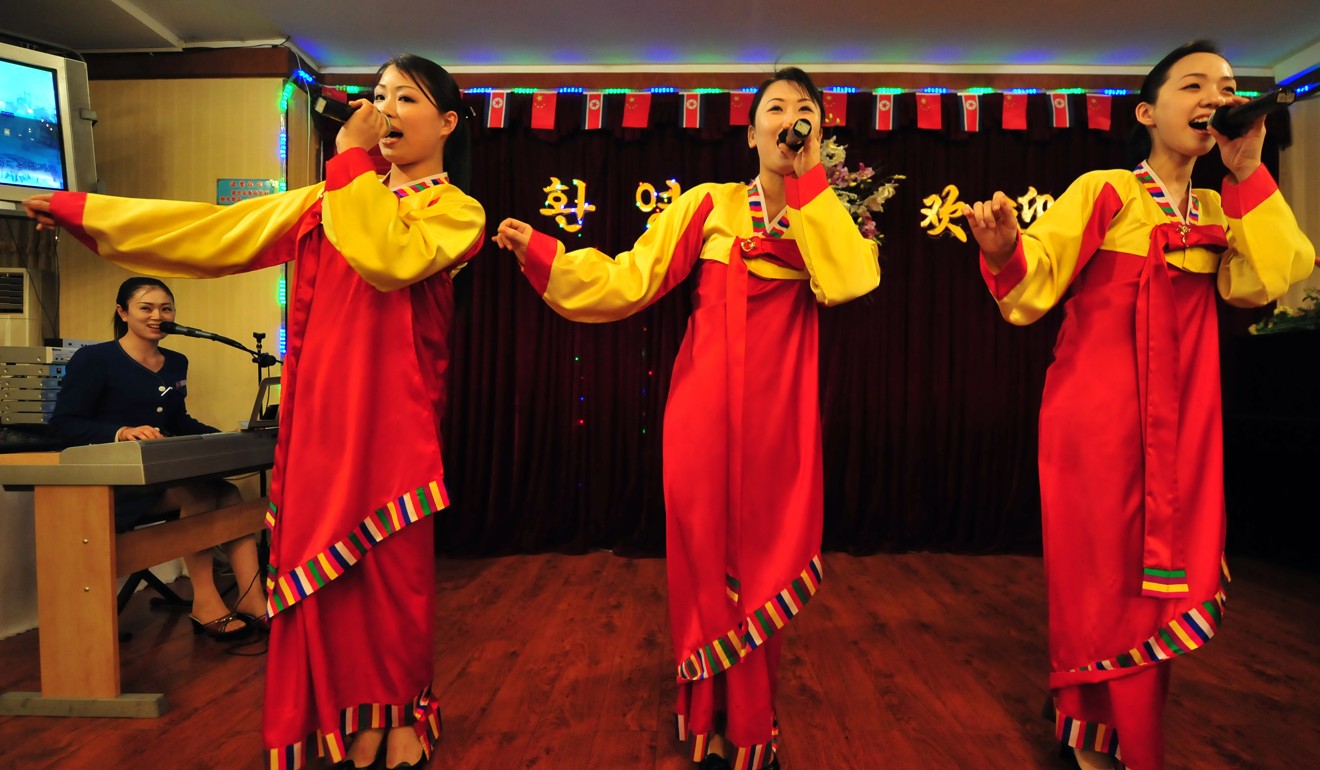
In South Korea, Winn speaks to hostess Han, a North Korean defector. She tells him the restaurant workers are drawn from Pyongyang’s elite. They are skilled musicians, singers and performers who are rewarded with enviable social status and showered with material comforts such as suitcases full of clothes – and even bananas, a valuable commodity in their homeland.
“What I ultimately conclude is we have got to stop seeing them as slaves,” Winn says. “Comparatively speaking, they are in high-status positions. But the chapter is partly about the conflict: who’s right?”
He punctuates his conversation with the extraordinary case of the 12 North Korean restaurant workers who, on April 6, 2016, fled from the Chinese port city of Ningbo for South Korea, along with the restaurant’s manager, Heo Gang-il. The South Korean government insisted they went of their own accord, tempted by a clandestine diet of television soap operas. Their families in North Korea have cried foul, however. “Our daughter is incapable of treason,” insisted the father of one of the 12.
Since Hello, Shadowlands went to print, the truth has come out. The women were tricked by their boss. “One of the theories is that these North Korean women are working in a restaurant in China, their manager is flipped by a South Korean spy and, without their consent, he says, ‘We are moving restaurants,’ but sweeps them instead into South Korea. And that is what happened. Heo blabbed. He got p***ed at South Korea because he wasn’t getting what he liked out of this relationship.”
Seoul ‘tricked’ 12 North Korean waitresses into defecting
Winn says the North Koreans were unwitting victims. “I wouldn’t be surprised if every single one of them is disappointed and unhappy with that situation,” he continues. “I doubt any of them would say, ‘I’ll never get to see my parents again, but cool, I am in South Korea.’ They were not deprived. They were not living a desperate enough life to want to turn their back on everything they knew.”
Winn wonders whether this political butterfly might flap its wings to devastating global effect, the 12 having become “bona fide geopolitical chess pieces” in broadsides between North and South. While South Korea’s President Moon Jae-in has talked of reuniting families as part of his broader goal of reunifying the nation, North Korea has cited the women as an instance of the South’s bad faith.
“When it comes to the fine details [of a negotiation] – and North Korea needs to push a little bit and South Korea needs to concede something – they can say, ‘What about those waitresses, the well-trained singing daughters of the fatherland? You kidnapped them. Now the world knows it’s true.”
There will doubtless be further developments, and Winn will be on hand to assess their potential consequences. Although he keeps a keen eye trained on the US, his interest in American politics is now confined to how they might affect his adopted homeland. “I care intensely about American policy in Southeast Asia, which makes me an extreme minority in the United States,” he says.
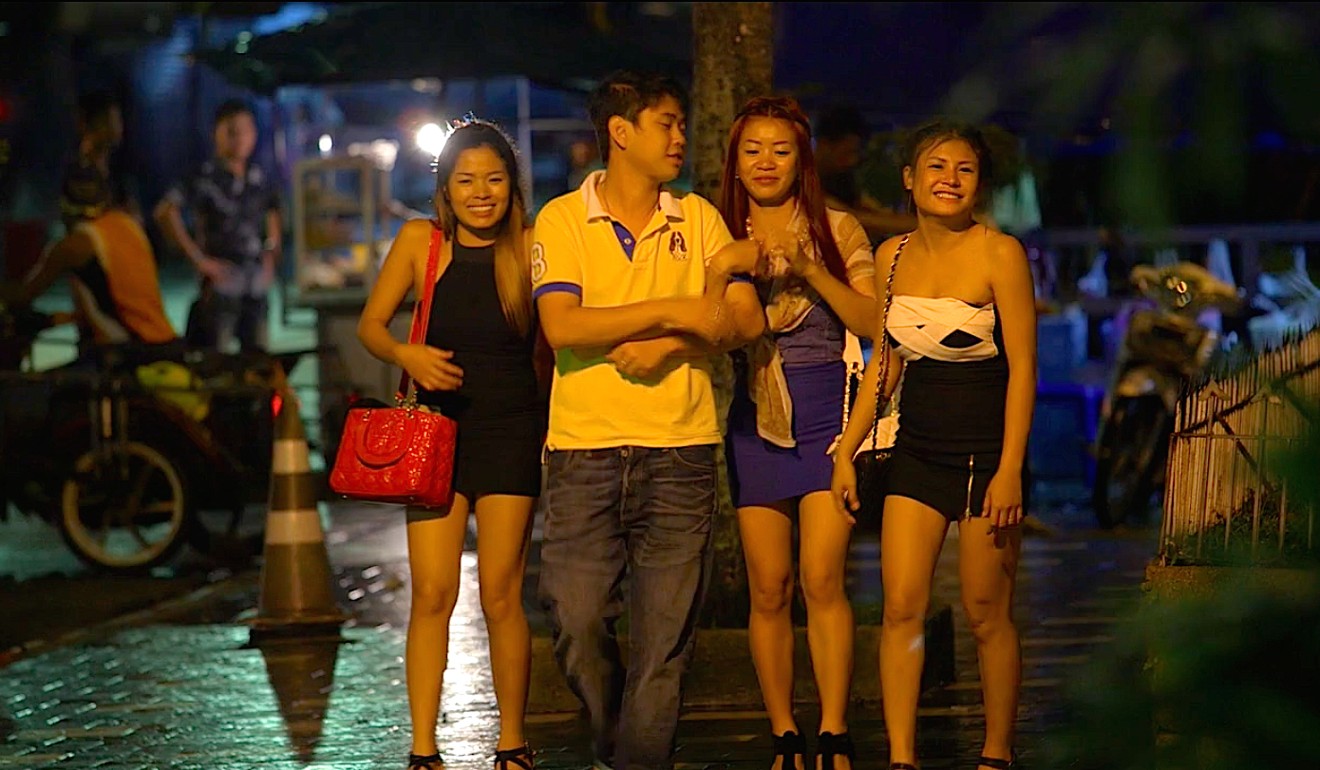
Asked if he has a sense of how Trump is faring in his part of Asia, he says, “They don’t like him, but they don’t have as emotional a response as Americans. They see him as a curiosity. They had not heard of him before. His fame had not reached middle-class Southeast Asia. They react to his physical appearance, which they find amusing.”
Calling Thailand home, and full of praise for everything from its people to its cuisine, Winn tends to play down any negative aspects of the country – like that shooting incident, mentioned earlier. He was standing in a crowd of anti-government protesters when nearby soldiers fired warning shots into the ground. “Everyone ran and scrambled,” Winn recalls. “As soon as you got out of that area, you were back in the normal Bangkok. It was quite strange. I ran all the way back to our apartment. There were college friends of my wife sitting there. They were on holiday and asking about the market and the good places to get noodles.”
Indeed, so great is Winn’s attachment to Bangkok in particular, and Southeast Asia generally, that he quickly inserts a codicil to his crime reporting: “Can I please emphasise this? The region is not descending into utter chaos,” he insists. “Don’t cancel your temple tours. Would I rather go to the roughest part of Bangkok or the roughest neighbourhood in the US? Hands down, Bangkok every single time.”

